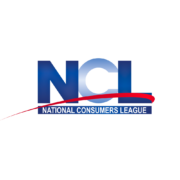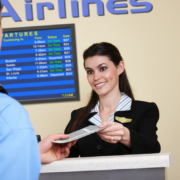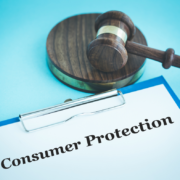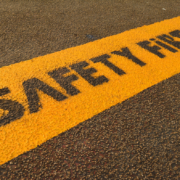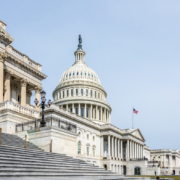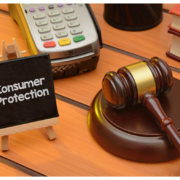Guest blog: Trump’s war on the CPSC is the most dangerous yet
By Robert Adler and R. David Pittle, Ph.D.
If you think that President Trump’s legally dubious war on regulatory agencies like EEOC, NLRB, and FTC is outrageous, be prepared to recognize the tiny Consumer Product Safety Commission (CPSC) as the hands-down winner for most savaged regulatory agency in this administration.
CPSC is the federal body whose sole mission is to reduce the estimated 49,000 deaths and 28 million medically treated injuries from using consumer products; these losses cost the country $1 trillion annually.
Not only has Trump just illegally fired the Democratic commissioners – and only the Democrats – at CPSC, he has also, according to a leaked OMB budget document, coupled this action with a proposed dismantling of the agency. If he gets his way, he will send CPSC’s substantially reduced staff and diminished authority into the bowels of the Department of Health and Human Services (HHS) never to be seen again.
This situation is so dire for consumers because unlike the independent agencies where Trump has fired commissioners but left their basic structures intact, his demolition of CPSC will prevent the agency from doing its core work or ever reconstituting itself. Once it has been torn apart, entombed in HHS, and its already minuscule budget skeletonized, the odds of restoring CPSC’s ability to function effectively to protect consumers will be virtually nil. The consequences for consumers will be increased deaths and injuries.
To say the least, parents throughout the country should be alarmed. For the past fifty years, CPSC has been the one agency most dedicated to protecting children from dangerous products. Worst of all, many of these hazards are not obvious to the naked or untrained eye.
Parents should particularly worry because not only is it likely that the new emasculated HHS safety division’s existing standards will be weakened but also future safety rules to protect their children will simply not be written. Behind the scenes, it will take only a wink-and-a-nod from the political idealogues overseeing the new division to stop safety actions in their tracks. And such inaction will go unnoticed given its newly imposed invisibility.
What makes CPSC so valuable to consumers and especially parents is its focus on hidden hazards, i.e., those risks to children that the most safety-conscious parents would not discover even after carefully inspecting a crib or a toy they’re about to purchase. For instance, determining whether a crib’s slats are too far apart—permitting a child’s body but not their head to slip through the slats too often resulting in the child’s strangulation – is not obvious. Nor can careful inspection reveal whether a doll has excessive amounts of toxic lead or contains small parts that could easily break free and choke a child.
CPSC can uncover these hazards because it meticulously and relentlessly surveys the market for injuries, illness, and deaths associated with consumer products. Once it has determined that a hazard needs to be addressed, CPSC can quickly mobilize manufacturers, consumers, voluntary standards groups, retailers, product designers, and the media to attack the problem.
Unfortunately, no one has yet found a way to eliminate products with design defects and manufacturing errors from creeping into the marketplace. The press of fierce competition has shown over the years that such mistakes are inevitable, and consumers pay a painful price. An effective CPSC to find and correct these mistakes is an essential guardrail for consumers.
One might ask why it’s so important that CPSC remain as an independent, highly visible agency. As former CPSC Commissioners who have worked at, monitored, and written about the agency for the past fifty years, we believe the answer is unambiguous: To be effective in protecting consumers from serous safety hazards, the agency needs to be free of improper control from political and commercial interests – concerns that led Congress in 1972 specifically to reject placing CPSC within what was then known as Health, Education & Welfare (HEW). And, it must have the ability to take swift action that gets the public’s attention without going through endless, time-consuming levels of review.
In short, were CPSC to be subsumed in a monolith like HHS and stripped of its independence and visibility, the likelihood of timely and effective safety action would be seriously compromised.
Consumers have benefited greatly from CPSC’s actions. Since the agency opened its doors in 1973, it has reduced the number of crib deaths by nearly 80 percent, childhood poisonings by over 80 percent, injuries from fire by 41 percent, injuries from baby walkers by almost 90 percent, and virtually eliminated childhood suffocations from playing in abandoned refrigerators. The complete list goes on and on, but the fact remains that CPSC provides one of the biggest bangs for the buck in government.
Product safety is not a political issue. The battle against human losses from unreasonably dangerous products must go on without political interference. To do otherwise would be a major injustice against consumers and their families, prompting us to recall Reinhold Niebuhr’s famous observation:
“Man’s capacity for justice makes democracy possible, but man’s inclination to injustice makes democracy necessary.”

